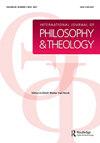The affective need to belong: belonging as an affective driver of human religion
IF 0.3
0 PHILOSOPHY
International Journal of Philosophy and Theology
Pub Date : 2021-05-27
DOI:10.1080/21692327.2021.1978309
引用次数: 2
Abstract
ABSTRACT Philosophy of religion has recently made a turn to lived religion, an approach which seeks to understand lived religion as it is experienced concretely by individual practitioners. However, this turn to lived religion has seen limited engagement with the notion of belonging. Belonging here refers to the felt sense of being part of a group – of insidership – along with the development of positive social ties and mutual affective concern. It is my contention in this paper that reflection on this experience of belonging can improve our understanding of lived religion. In particular, I argue that human beings have an affective need to belong – a fundamental and affective need for belonging and positive social relationship which is felt in the body and rooted in human biology and evolutionary history. This paper makes the case for the affective need to belong, before examining its implications for understanding religion. It finds that the affectivity of belonging is capable of raising the affective salience of certain in-group beliefs, as well as creating affective hurdles to dissent, and in so doing can help to explain processes of religion conversion, sustained religious adherence, and religious disaffiliation.归属的情感需要:归属是人类宗教的情感驱动力
宗教哲学最近转向了活宗教,这是一种试图理解活宗教的方法,因为它是个体实践者具体体验的。然而,这种向活宗教的转变使人们对归属感的参与有限。这里的归属感指的是作为一个群体的一部分的感觉——内部关系——以及积极的社会关系和相互情感关怀的发展。我在本文中认为,反思这种归属感可以提高我们对生活宗教的理解。特别是,我认为人类有一种归属感的情感需求——一种对归属感和积极社会关系的基本情感需求,这种需求植根于人类生物学和进化史。本文提出了归属的情感需求的理由,然后考察了它对理解宗教的影响。研究发现,归属感能够提高某些群体内信仰的情感显著性,并为异议制造情感障碍,从而有助于解释宗教皈依、持续的宗教信仰和宗教脱离的过程。
本文章由计算机程序翻译,如有差异,请以英文原文为准。
求助全文
约1分钟内获得全文
求助全文
来源期刊

International Journal of Philosophy and Theology
PHILOSOPHY-
CiteScore
0.30
自引率
0.00%
发文量
12
期刊介绍:
International Journal of Philosophy and Theology publishes scholarly articles and reviews that concern the intersection between philosophy and theology. It aims to stimulate the creative discussion between various traditions, for example the analytical and the continental traditions. Articles should exhibit high-level scholarship but should be readable for those coming from other philosophical traditions. Fields of interest are: philosophy, especially philosophy of religion, metaphysics, and philosophical ethics, and systematic theology, for example fundamental theology, dogmatic and moral theology. Contributions focusing on the history of these disciplines are also welcome, especially when they are relevant to contemporary discussions.
 求助内容:
求助内容: 应助结果提醒方式:
应助结果提醒方式:


